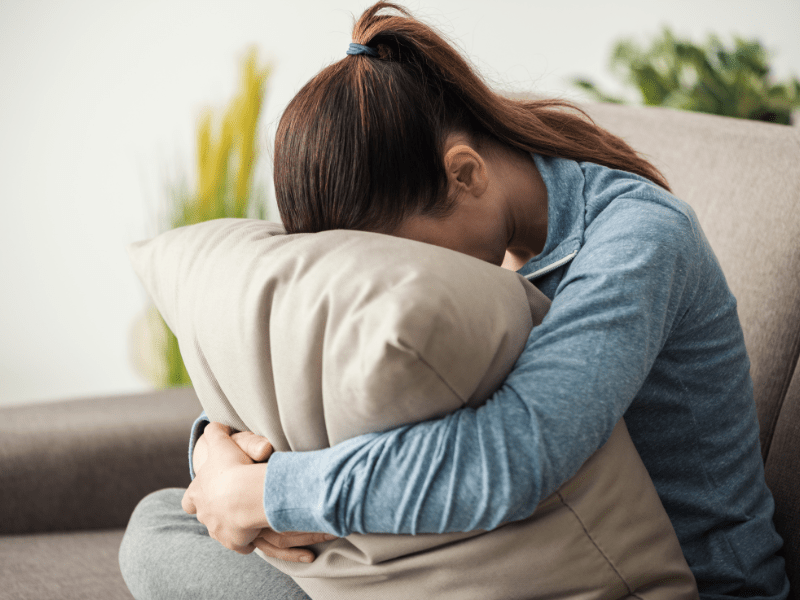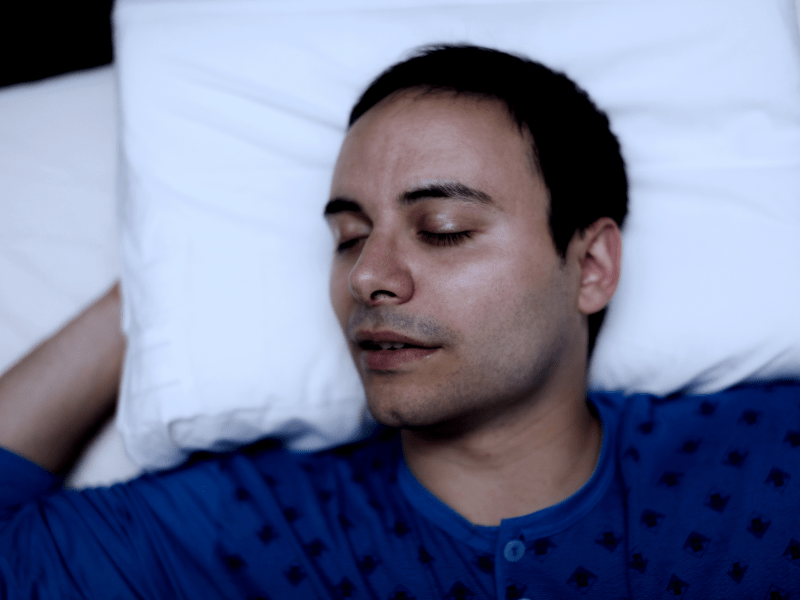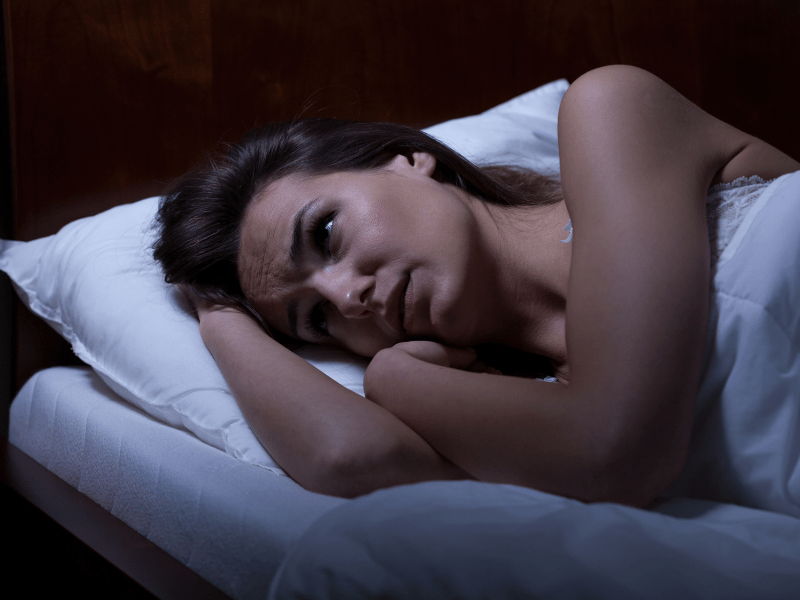Introduction
Have you ever wondered what happens when someone goes too long without sleep? Sleep deprivation psychosis is a serious mental condition resulting from prolonged wakefulness - it's not merely about feeling tired or sluggish.
This iSense article gives insights into the causes, symptoms, and treatments of this distressing issue that impacts one's perception of reality profoundly. Are you ready to unravel the mysteries behind your sleepless nights?
Causes and Symptoms of Sleep Deprivation Psychosis
The development of sleep deprivation psychosis, a severe mental disorder, is typically instigated by extended periods without sufficient sleep. It's a concerning testament to the vital role sleep plays in our overall health and specifically our mental well-being.
A variety of factors may contribute to this condition, such as stress, insomnia or underlying sleep disorders which can rob an individual of the recommended 7-9 hours of night-time rest.
Acute symptoms often begin to manifest after approximately 24 hours without sleep. The initial signs might be subtle but progressively worsen with continued lack of rest. Hallucinations characterize one major symptom where individuals perceive sights or sounds that aren't truly present—a cruel trick played by a mind critically deprived of its needful reprieve. This delusional thinking extends into paranoia or an exaggerated sense of fear and anxiety that isn’t based on reality, further eroding their ability to distinguish reality from imagination.
Another concerning manifestation includes cognitive impairment—a failing mental acuity reflected in poor memory recall and decision-making abilities.
Treatment Options for Sleep Deprivation Psychosis
Treatment for sleep deprivation psychosis aims to address the underlying causes of sleep deprivation and manage the symptoms effectively. Here are some treatment options that can help individuals with sleep deprivation psychosis:
- Sleep hygiene: Practicing good sleep habits is crucial in managing and preventing sleep deprivation psychosis. This includes establishing a regular sleep schedule, creating a comfortable sleep environment, avoiding stimulating activities before bed, and limiting caffeine intake.
- Medications: In certain cases, doctors may prescribe medications to help improve sleep quality and manage symptoms of sleep deprivation psychosis. These may include sedative-hypnotics or antipsychotic medications to alleviate acute symptoms.
- Cognitive-behavioral therapy (CBT): CBT can be effective in treating sleep deprivation psychosis by addressing any underlying psychological factors contributing to poor sleep. It helps individuals identify and change negative thoughts and behaviors related to their sleep patterns.
- Sleep restriction therapy: This therapy involves limiting time spent in bed to match the actual amount of time individuals spend sleeping. By gradually increasing the time spent in bed as sleep quality improves, it helps regulate the circadian rhythm and promotes better overall sleep.
- Light therapy: Light therapy involves exposure to bright light to help regulate the body's internal clock, particularly for individuals experiencing insomnia or disruptions in their natural circadian rhythm.
- Stress management techniques: Stress can significantly contribute to disrupted sleep patterns and exacerbate symptoms of sleep deprivation psychosis. Learning stress management techniques such as relaxation exercises, mindfulness meditation, or engaging in enjoyable activities can promote better quality sleep.
- Avoiding stimulants: Certain substances like caffeine and nicotine can interfere with both falling asleep and staying asleep. It is important for individuals with sleep deprivation psychosis to minimize or avoid these stimulants close to bedtime.
- Professional intervention: In severe cases where underlying mental health conditions coexist with sleep deprivation psychosis, professional intervention may be necessary. Mental health professionals can provide appropriate treatments such as therapy, medication management, and comprehensive care plans.
Conclusion
In conclusion, sleep deprivation psychosis is a serious mental disorder that occurs when individuals are deprived of the necessary sleep for an extended period. It can cause symptoms such as hallucinations, delusional thinking, and paranoia.
Treatment options are available to help individuals recover from this condition and restore their mental well-being. It is crucial to prioritize sufficient sleep and seek professional help if experiencing these symptoms.
FAQs
1. What is sleep deprivation psychosis?
Sleep deprivation psychosis is a condition that occurs when an individual experiences chronic or severe lack of sleep, leading to hallucinations, delusions, and other psychotic symptoms.
2. What are the common symptoms of sleep deprivation psychosis?
Common symptoms of sleep deprivation psychosis include seeing or hearing things that aren't there, having false beliefs or paranoid thoughts, experiencing confusion and disorientation, and having difficulty distinguishing between reality and fantasy.
3. What causes sleep deprivation psychosis?
Sleep deprivation psychosis is primarily caused by prolonged periods of inadequate sleep or disrupted sleep patterns. Factors such as insomnia, work-related stress, medical conditions like sleep apnea, and lifestyle choices can contribute to its development.
4. How can sleep deprivation psychosis be treated?
The most effective treatment for sleep deprivation psychosis is addressing the underlying cause – improving overall sleeping habits and ensuring sufficient restful hours each night. In some cases, medication may be prescribed temporarily to regulate sleeping patterns and manage associated mental health symptoms. It's important to consult with a healthcare professional for proper diagnosis and guidance in developing a personalized treatment plan.
Sleep psychosis is one harrowing example of the importance of sleep. High-quality sleep is easier to achieve when you sleep on a high-quality mattress. iSense mattresses offer adjustable firmness on both sides of the bed, with twenty pressure-relieving settings. From soft to firm, enjoy comfort you control with iSense. If you aren't sure what type of mattress would be best for you, take a look at our plush vs firm mattress article, which explains the differences.






















